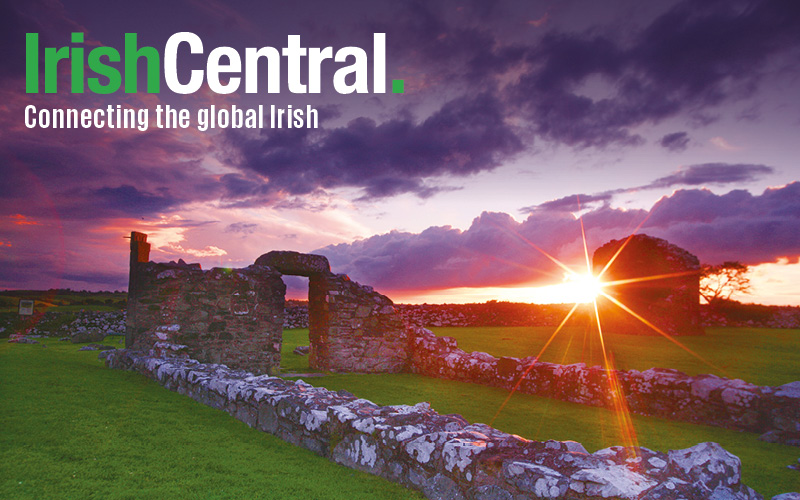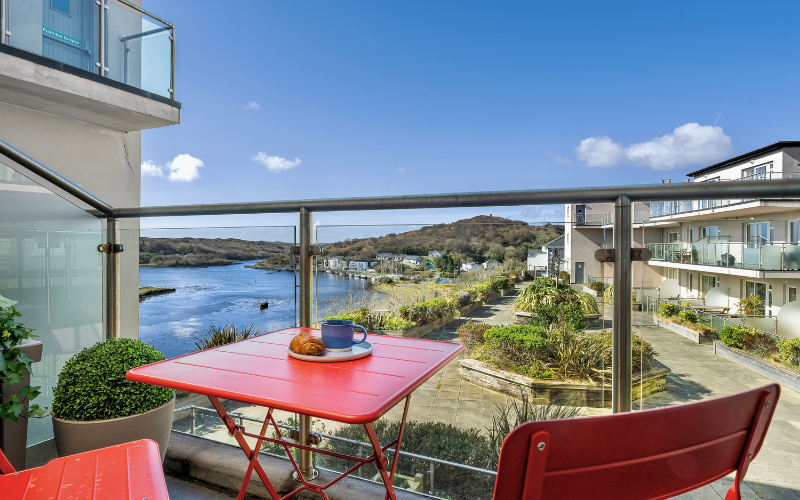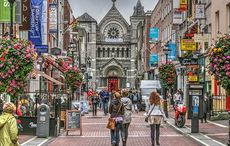Everywhere He Wants to Be
by Niall O'Dowd
He travels the globe putting sponsorship deals together and whether it's the soccer World Cup in South Africa or the Kentucky Derby at Churchill Downs or the Olympics in Beijing, Visa's Michael O'Hara Lynch will be there.
Michael O'Hara Lynch is everywhere you would want to be. As head of Visa event and sponsorship marketing he flies to World Cups, Olympics, Super Bowls and every other major event on the planet. He negotiates multi-million-dollar contracts for Visa and helps create the marketing buzz for the world's greatest sports events.
He's the kid brought up near the Bronx in the small town of Katonah who grew up to see the world and all that's in it. And he loves every minute of it.
He was one of the first sports agents, those Tom Cruise wannabees who scream "Show me the money" in movies like Scott Boras with Alex Rodriguez in real life except you couldn't imagine Michael O'Hara Lynch doing that. He's quiet, cool and very effective.
As a sports agent he negotiated deals for superstars such as Michael Jordan and Arthur Ashe. With Jordan he put him on the box of Wheaties, achieving the ultimate iconic status for the Bulls superstar at the time.
Strange as it may seem, he had a tough job convincing General Mills to do it. They only wanted already minted legends and were unsure that the new sensation Jordan belonged on the box. O'Hara Lynch convinced them otherwise. Wheaties has never looked the same since.
These days he is near the top of a company which handles an average of 7,000 credit card transactions per second every second in the U.S. and $4.5 trillion in transactions every year.
He travels the globe putting sponsorship deals together, and whether it's the soccer World Cup in South Africa or the Kentucky Derby at Churchill Downs or the Olympics in Beijing, the tall, lanky O'Hara will be there.
He's fifty and looks forty, lives in the suburbs of beautiful San Francisco with his wife and two daughters, McKenzie, a star Irish dancer, and Dylan. For recreation he's a Notre Dame sports nut as befits an alumni of that great Irish bastion.
He attended Notre Dame and was a walk-on for the basketball team - he has never forgiven then coach Digger Phelps for keeping him warming the bench. It might have had something to do with the fact that the Fighting Irish at the time were ranked near to No. 1 in the country,
He was a contemporary of Joe Montana at Notre Dame and saw the golden years of the football program. He left in 1979.
When we talked he had high hopes for the team for the 2007 season. Enough said. Suffice it to say South Bend is one of the places even Visa doesn't want to be this football season.
So how come the name Michael O'Hara Lynch? "The reason I use O'Hara, you know, is my mother Kathleen Jean O'Hara," he says. "She had nine boys. I was the sixth but I was the only one who got her middle name. Out of respect for her I use it all the time." A dutiful son it seems.
He laughs that his parents, good Catholics, probably used the rhythm method when they got married. Nine boys arrived in rapid succession, not a baby girl in sight. "I guess they gave up trying after the last one," he says with a smile.
His dad was a high school principal and he gave Michael his love of sport. In 1976 his dad drove him from Katonah to faraway Montreal for the Olympics. All they could afford was standing-room for track and field tickets, but to the youngster it looked like heaven.
"I got the bug right there - to this day, seeing all these countries and people coming together, there was something truly special about it all. Right there I knew I wanted to work on the Olympics."
Many of his siblings became teachers, but from an early age Michael had a head for numbers, a heart for sport and an eye for a deal.
" I don't know where I got the business instinct from." He says part of it was the influence of Notre Dame. "I always felt really comfortable in the marketing areas, and numbers came easy to me. Sport was a given."
He got a bachelor's in business administration at Notre Dame and later went on to an MBA at Cornell. In between he fused his two great interests, sports and marketing, together.
"Prior to Cornell I worked as an in-house consultant for the Timex Corporation, and when we were developing the iron man triathlon watch, we hired two athletes, Alberto Salazar and Mary Slaney, to promote it. That's where I learned about the business of sports marketing."
It was a brand-new business. He joined Proserv, founded in 1984, then one of the first companies in the field. "It was predominantly lawyers who were handling the athletes," he remembers. "I came in with a marketing background to help build the athletes' brand. We felt there wasn't a single corporation out there that couldn't use sports in one way or another to develop their business"
He fondly remembers working with Jordan. "Michael is able to differentiate between the public person, the celebrity icon and the normal private person. He was a tremendously normal guy, and recognized that this celebrity thing was not who he was as a person. He was also raised by great parents and they raised him right."
O'Hara Lynch did Proserv for seven years before jumping to entertainment vehicles because he had a non-compete clause when he left.
He ran the events business for Radio City Music Hall, jumping into a business that, like sport, was starting to attract massive new coverage from paparazzi to mainstream media.
Radio City productions were not limited to the famed theater itself. They staged Super Bowl halftime shows, World Cup opening ceremonies, and of course the iconic Christmas shows. "It was a way for me to learn different skills and to be on the inside of entertainment just as it exploded as a medium."
But his wife Susan, a Northern California girl, had never fully settled in the Big Apple. When their first child became due they began thinking of moving to sunnier climes.
A meeting with a senior Visa executive sealed the deal. "Over breakfast she asked me if I would be interested in running the sports and entertainment stuff that Visa was doing. They had the Olympic team sponsorship, they were actually doing an Elton John tour, and it just sounded great."
He had worked with Visa before when he brokered a deal which made them sponsor of the U.S. Open tennis championship. "They wanted someone who both worked in the entertainment business from a marketing perspective and knew the sports world.
"When I mentioned it to my wife over dinner, she went to the closet and began packing her bag. Off we went to San Francisco. I managed the Olympics for Visa. We had just become sponsor of the NFL and a sponsor of racing's Triple Crown."
"My job was essentially to manage those athletes, Olympic, NFL and the Visa Triple Crown, and essentially build an integrated marketing campaign around each event - 'everywhere you want to be - unsurpassed acceptance.'"
Because all credit card companies essentially work the same, the brand means everything, which is where O'Hara Lynch comes in.
"When you think about a property like the Olympics, Visa gets you in there. It's our main competitive difference with American Express," he says. "But the Olympics doesn't take MasterCard either. The campaign was essentially designed to differentiate between the brands."
The marketing has clearly worked. Visa has a 52 percent market share in the U.S. and a 64 percent share worldwide, up by over 33 percent.
Visa is not only about sports, of course. Visa is the largest Broadway sponsor, the only card to get you into the Tony awards; they are also a proud sponsor of Disney productions.
Among the places O'Hara Lynch wants to be is in Ireland with his wife and kids at some point in the future to trace the roots of his great-grandparents who left.
He traces those roots to Cork but says he "got stuck in Dublin" every time he has gone over. "I'm dying to take the family over there. I've been waiting for my children to get older so they can appreciate it a little more. I want them to know what their history is all about."
No doubt when they do, O'Hara Lynch will see a land that has been transformed in the past few decades as prosperity has come home. Not unlike his own life from its modest beginnings to worldwide traveler and dealmaker. He has a visa for the world now.




Comments